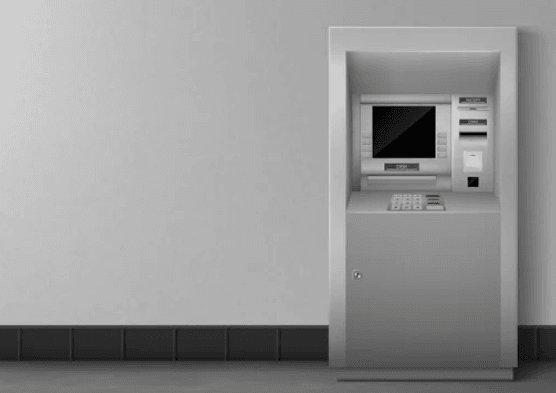
ATM transactions are an essential part of everyday banking, but excessive withdrawals can lead to unwanted fees. Understanding ATM charges and implementing smart banking strategies can help you save money. In this article, we will discuss common ATM transaction charges, compare charges across major banks, and provide tips to avoid these fees effectively.
Common ATM Transaction Charges
Banks levy different charges for ATM transactions based on factors such as location, type of account, and card variant. Here are the most common ATM charges:
1. Cash Withdrawal Charges
- Most banks offer a limited number of free transactions per month at their own ATMs (e.g., 5 free transactions for savings accounts).
- Beyond the free limit, charges typically range from ₹10 to ₹25 per transaction, depending on the bank.
2. Non-Bank ATM Usage Charges
- For transactions at other bank ATMs, banks generally allow 3-5 free transactions per month in metro cities and up to 5 in non-metro locations.
- After exceeding the limit, charges may apply, usually ₹20-₹25 per withdrawal and ₹8-₹10 for non-financial transactions (e.g., balance inquiry, mini-statement).
3. Declined Transactions (Insufficient Balance)
- If an ATM transaction is declined due to insufficient funds, a fee of ₹20-₹25 per attempt may be charged.
4. International ATM Charges
- Cash Withdrawals: ₹100-₹250 per transaction, plus currency conversion charges (typically 2.5% to 3.5% of the transaction amount).
- Balance Inquiry: ₹25-₹50 per inquiry.
5. Cardless Cash Withdrawal Charges
- Some banks offer cardless ATM withdrawals, which may attract additional fees (usually ₹10-₹25 per transaction).
6. Interchange Fee (Merchant Charges for ATM Usage)
- If a customer uses an ATM that is part of a different bank’s network, the acquiring bank may charge an interchange fee (usually paid by the card-issuing bank).
7. Annual Debit Card Charges
- Banks levy an annual debit card maintenance fee ranging from ₹100 to ₹500, depending on the type of card.
ATM Transaction Charges Comparison Across Banks
The table below compares ATM charges across major Indian banks:
| Bank | Free Transactions | Charges Beyond Free Limit | Daily Withdrawal Limit | International ATM Charges |
|---|---|---|---|---|
| State Bank of India (SBI) | 5 free transactions at SBI ATMs; 3 at other bank ATMs in metro cities, 5 in non-metro areas | ₹10 + GST at SBI ATMs; ₹20 + GST at other bank ATMs per transaction | ₹40,000 to ₹1,00,000, depending on card type | Minimum ₹100 + GST + 3.5% of transaction amount |
| HDFC Bank | 5 free transactions at HDFC Bank ATMs; 3 at other bank ATMs in metro cities, 5 in non-metro areas | ₹21 + taxes per transaction | ₹25,000 to ₹3,00,000, depending on card type | ₹125 + applicable taxes per withdrawal; ₹25 + taxes for balance inquiry |
| ICICI Bank | 5 free transactions at ICICI Bank ATMs; 3 at other bank ATMs in metro cities, 5 in non-metro areas | ₹20 per financial transaction; ₹8.50 per non-financial transaction | ₹50,000 to ₹2,50,000, depending on card type | Minimum ₹150 per transaction |
| Axis Bank | 5 free transactions at Axis Bank ATMs; 3 at other bank ATMs in metro cities, 5 in non-metro areas | ₹21 per transaction | ₹40,000 to ₹3,00,000, depending on card type | ₹125 per transaction |
| Punjab National Bank (PNB) | 5 free transactions at PNB ATMs; 3 at other bank ATMs in metro cities, 5 in non-metro areas | ₹10 + applicable taxes per transaction | Up to ₹50,000 | ₹150 per transaction |
| Canara Bank | 5 free transactions at Canara Bank ATMs; 3 at other bank ATMs in metro cities, 5 in non-metro areas | ₹21 per transaction | ₹75,000 for Classic Debit Card; higher for premium cards | Not specified |
Notes:
- Free Transactions: Typically include both financial (cash withdrawals) and non-financial (balance inquiries, mini statements) transactions.
- Metro Cities: Defined by the Reserve Bank of India (RBI) as Mumbai, New Delhi, Chennai, Kolkata, Bengaluru, and Hyderabad.
- Charges Beyond Free Limit: As per RBI guidelines effective from January 1, 2022, banks may charge up to ₹21 + taxes per transaction beyond the free limit.
- International ATM Charges: Include withdrawal fees and may also attract currency conversion charges, typically ranging from 2.5% to 3.5% of the transaction amount.
How to Avoid ATM Transaction Charges
Avoiding ATM fees is easy with a few smart banking strategies. Here are the best ways to minimize or eliminate these charges:
1. Use Your Bank’s ATMs
- Withdraw cash from your own bank’s ATM to enjoy free transactions and avoid additional fees.
2. Plan Withdrawals Efficiently
- Instead of making multiple small withdrawals, withdraw a larger amount less frequently to stay within the free transaction limit.
3. Use Digital Payment Methods
- Reduce the need for cash by using UPI, mobile wallets, net banking, and debit/credit cards for transactions.
4. Utilize Cashback & Reward Programs
- Some banks offer free ATM withdrawals for premium customers or provide cashback for specific debit cards.
5. Withdraw from Partner Bank ATMs
- Check if your bank has partner bank tie-ups that allow free transactions at other ATMs.
6. Opt for Accounts with Higher Free Limits
- Salary and premium accounts often provide higher free ATM withdrawal limits. Consider upgrading your account if needed.
7. Avoid ATM Declined Transactions
- Ensure your account has sufficient balance before attempting a withdrawal to avoid fees on declined transactions.
8. Use Cash Withdrawal Services at Retail Stores
- Some banks and digital wallets allow cash withdrawals at partner stores, reducing dependence on ATMs.
9. Explore Cardless Cash Withdrawal Options
- Use cardless ATM withdrawals (if available) to avoid certain card-related charges.
Final Thoughts
ATM transaction charges can add up over time, but with careful planning and digital banking habits, you can significantly reduce or eliminate these fees. Always check your bank’s latest policies on ATM withdrawals and choose banking methods that best suit your financial needs.
By following these tips, you can save money on ATM transactions and make the most of your banking experience. Stay informed and bank smart!


